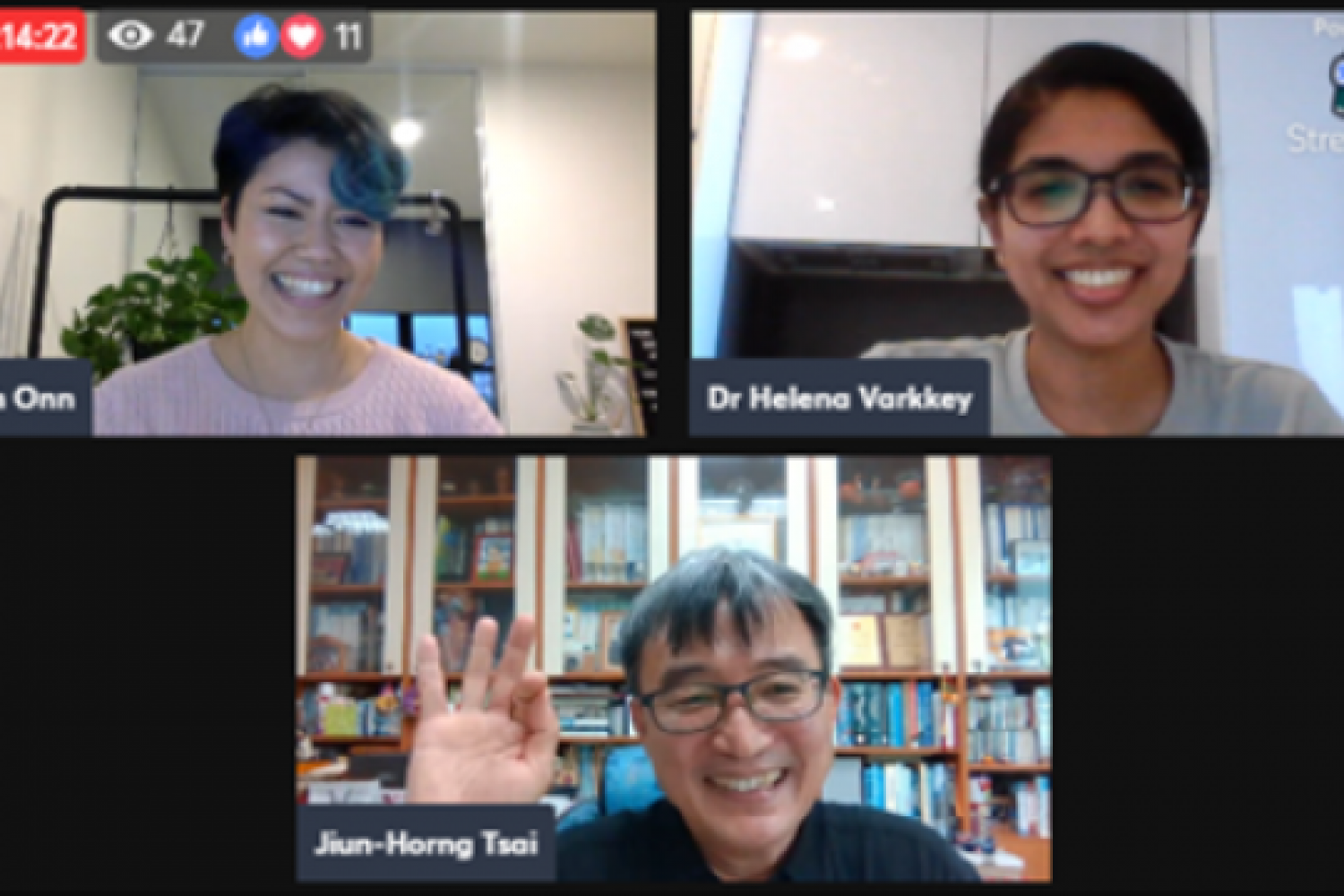Malaysia Business
[Webinar Series] From research to action: How do academics fill in the gaps in addressing the never-ending haze crisis?
2021-07-29

On 29th July 2021, the National Cheng Kung University (NCKU) Overseas Hub in Malaysia in collaboration with NAFAS and CERAH - Anti Haze Action has organized a webinar entitled “From research to action: How do academics fill in the gaps in addressing the never-ending haze crisis?”. The one-hour webinar was moderated by Miss Najah Onn, an Environmental Engineer, Sustainable Fashion Blogger, and Director at Footprint Mechanics. Two distinguished panelists were invited to share their thoughts and knowledge on the topic of discussion – Professor Jiun-Horng Tsai (Department of Environmental Engineering, College of Engineering, National Cheng Kung University, Taiwan) and Dr. Helena Varkkey (Department of International and Strategic Studies, Faculty of Arts and Social Sciences, Universiti Malaya, Malaysia).
Miss Najah started the webinar by addressing the focus of discussion which were: 1) to understand the haze burden in Malaysia and Taiwan, and 2) to discuss the contribution of high impact research studies in developing preventative measures and in supporting policymaking processes to overcome the haze crisis. In addition, this webinar took a glance at ways to cultivate public awareness of haze, the challenges in managing this crisis, and follow-up actions in the implementation and enforcement of the current policies.
The first panelist, Prof. Tsai shared a few insights on the haze burden in Taiwan. He mentioned that before the year 2000, the haze problem in Taiwan was due to the emission of domestic sources (E.g.: motorcycles, industries, and open burning). Taiwan has also suffered from the transboundary haze problem and sandstorm issues from mainland China at the end of the last century. However, the impact has been relieved gradually in recent years. He told the audience that the Taiwan government took action to reduce the emissions, and resulted in a significantly improved PM2.5 reading. Last year, the average of the PM2.5 concentration in different cities of Taiwan was around 10 to 25 micrograms per cubic meter, and that was actually half of the levels from the year 1980s.
Dr. Helena explained that PM here actually stands for particulate matter and the most important parameters in monitoring haze are PM2.5 (particulate matter with less than 2.5 microns in size) and PM10 (particulate matter with less than 10 microns in size). Dr. Helena mentioned, “The smaller they are, the more dangerous because when you breathe them in, your nose hairs and all these cannot filter them out so they go very deep into your lungs. They can even go into your bloodstream and this results in both short- and long-term effects, and even death”. Different from Taiwan, the cause of haze in South East Asian region largely comes from biomass fires in peatlands and other types of forest fires. In addition, Dr. Helena described a hazy day experience as “a smoky smell in the air with a reduced visibility, and greyish or yellowish veil over the skylines”.
At the 48th minute of the discussion, Miss Najah quoted the suggestions to improve the ambient air quality as stated in Prof. Tsai’s recent research paper entitled “Effectiveness of SOx, NOx and primary particulate matter control strategies in the improvement of ambient PM concentration in Taiwan”. Among the suggestions were the replacement of antiquated power plants and the use of clean liquefied natural gas (LNG) fuel, the replacement of old motor vehicles, and stringent emission standards for stationary sources. Prof. Tsai shared that he had the opportunity to join several expert committees to share his research outputs, which later were adopted by the policymakers in Taiwan.
Dr. Helena shared some important key points for academics to get into policymaking is that academics need to understand the background as well as the science or data behind the issue. She took the Malaysia – Indonesia relations over haze as an example. She mentioned that one should understand the diplomatic history between these two countries in order to recommend things that are within that context, as such to consider what kind of cross border strategies for Malaysian diplomats to use in engaging with the Indonesian counterparts. She summarized that a good balance is needed between taking in the science seriously and understanding the limitations of politics. Prof. Tsai added that if we want to achieve a balance of comfortable life and better environmental quality, we need good policies based on the knowledge of environmental science and engineering. He suggested that putting the academic output into the policy development process can control the pollution problem effectively.
The webinar was broadcasted live through the Facebook page of NCKU Overseas Hub in Malaysia (https://www.facebook.com/NCKUOHinMalaysia), NAFAS (https://www.facebook.com/NAFAS.EDU/) and CERAH – Anti Haze Action (https://www.facebook.com/AntiHazeAction). Among the attendees of the webinar were representatives from Camarines Sur Polytechnic Colleges (Philippines), De La Salle University (Philippines), Tarlac Agricultural University (Philippines), Airlangga University (Indonesia), Universiti Malaya (Malaysia), Universiti Kebangsaan Malaysia (Malaysia), Universiti Utara Malaysia (Malaysia), Institut Pendidikan Guru Kampus Ilmu Khas (Malaysia) and National Cheng Kung University (Taiwan). The recorded version of the webinar is made publicly available at https://fb.watch/7f8yWKQ5im/.
Keyword: